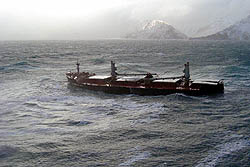Teaching about Controversial Issues
 Some of the topics explored and investigated in the units may be sensitive and/or controversial, depending on where you are located, what jobs and/or industry the local economy depends on, and what previous conceptions/misconceptions your students may have.
Some of the topics explored and investigated in the units may be sensitive and/or controversial, depending on where you are located, what jobs and/or industry the local economy depends on, and what previous conceptions/misconceptions your students may have.
Some guidelines that may be useful for teachers follow:
- Present the science objectively, being careful to leave your emotions behind. Research and data can raise students’ awareness and understanding of a topic.
- Allow students to discover information and facts on their own, from a variety of sources.
- If possible, invite local residents that have first hand knowledge of the topic being discussed. If there are opposing views of an issue, try to find speakers for both sides.
- Encourage students to look for both pro and con, positive and negative, if a topic or issue seems to have opposing views.
 Encourage students to look for solutions if an issue/topic seems doomed to a gloomy future.
Encourage students to look for solutions if an issue/topic seems doomed to a gloomy future.- If students become passionate about a particular topic, you may need to establish ground rules before classroom discussions take place.
Other web sites:




